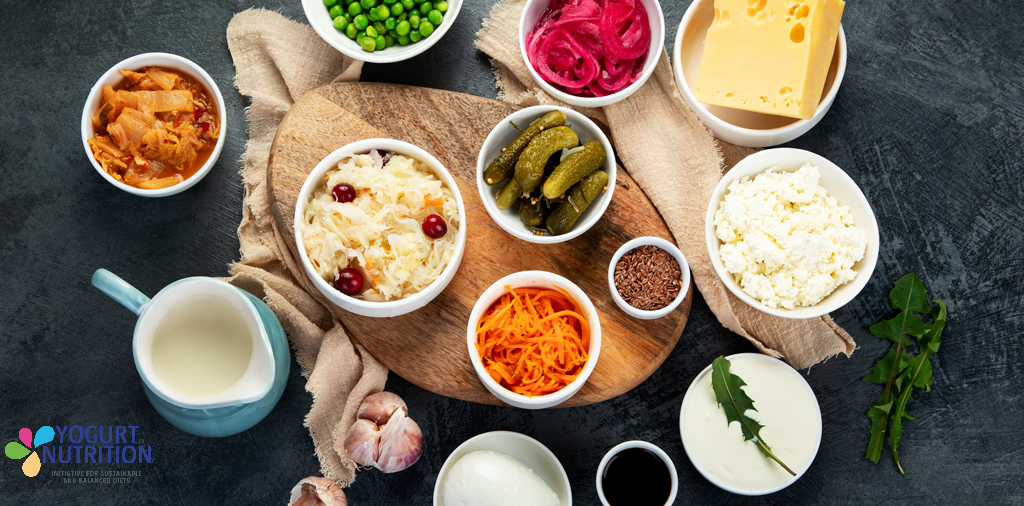Is your gut healthy? 10 fermented foods proven to supercharge digestion and immunity

Best fermented foods for gut health
In a world increasingly focused on wellness, fermented foods have surged into the spotlight as some of the most effective ways to improve gut health, strengthen immunity, and support long-term wellbeing. Nutrition experts say that the rise in digestive issues, from bloating to chronic indigestion, is driving more people to explore natural, probiotic-rich foods that restore balance in the gut microbiome.
Here are 10 science-backed fermented foods that can transform your gut health and add powerful nutrients to your everyday meals.
1. Yogurt: The Most Accessible Source of Probiotics
Yogurt remains one of the most widely consumed fermented foods, rich in live cultures that feed healthy gut bacteria. It supports digestion, reduces inflammation, and helps maintain regular bowel movements. Choose unsweetened varieties with “live and active cultures” for maximum benefits.
2. Kefir: A Stronger Probiotic Punch
Kefir is often described as a “drinkable yogurt,” but its probiotic diversity is significantly higher. Studies show kefir may support digestion, reduce bloating, and improve tolerance to lactose. Its slightly tart flavor makes it perfect for smoothies and breakfast bowls.
3. Sauerkraut: Fermented Cabbage Packed With Fiber
This traditional food is rich in probiotics, vitamins C and K, and gut-friendly enzymes. Sauerkraut helps strengthen digestion and improve immune function. For best results, choose unpasteurized sauerkraut, which retains its beneficial live bacteria.
4. Kimchi: A Spicy Superfood for Digestive Strength
Kimchi combines cabbage, garlic, ginger, and chili pepper, a probiotic powerhouse. Research shows kimchi can reduce inflammation, aid digestion, and boost metabolism, thanks to its diverse microbial profile and antioxidant-rich ingredients.
5. Kombucha: The Fermented Tea With Immune Benefits
Kombucha is known for its detoxifying qualities and probiotic content. This sparkling, fermented tea may support gut bacteria, help digestion, and offer mild energy-boosting effects due to natural B vitamins.
READ ALSO
10 cooking mistakes you’re probably making, and how to fix them like a chef
8 Hydrating Foods That Boost Energy and Keep You Refreshed All Day!
6. Miso: A Flavor-Rich Gut Booster
Made by fermenting soybeans, miso is essential in Japanese cuisine. It contains beneficial enzymes and probiotics that improve digestion. Miso soup is one of the easiest ways to incorporate this savory, umami-rich food into your diet.
7. Tempeh: Fermented Protein for Digestive Health
Tempeh is a nutrient-dense plant-based protein produced by fermenting soybeans. It improves gut function, provides prebiotic fiber, and is an excellent meat alternative for maintaining digestive balance.
8. Pickles (Fermented): Crunchy, Gut-Friendly Snacks
Naturally fermented pickles, not vinegar-based, contain live cultures that help promote a healthy gut microbiome. They also offer hydration and electrolytes, making them a refreshing, low-calorie snack.
9. Sourdough Bread: Easier on the Stomach
Fermentation breaks down gluten and phytic acid, making sourdough bread easier to digest compared to regular bread. Its natural fermentation process may support better blood sugar control and improved gut health.
10. Natto: A Nutrient-Dense Japanese Fermented Soybean Dish
Though its aroma and texture may be unusual for beginners, natto is rich in vitamin K2, probiotics, and a unique enzyme called nattokinase, which supports cardiovascular health and digestion.
The Gut Health Takeaway
Experts agree that adding fermented foods to your diet can dramatically improve gut health, boost immunity, and reduce symptoms like bloating, indigestion, and fatigue. With their natural probiotics and enzymes, these foods help restore gut balance in a fast-paced world where stress and poor diets disrupt digestion.
FAQ: Fermented Foods & Gut Health
1. What are fermented foods and why are they good for gut health?
Fermented foods contain live probiotics that help balance the gut microbiome. They support digestion, reduce inflammation, and improve nutrient absorption.
2. How often should I eat fermented foods?
Most nutritionists recommend 1–2 servings per day, depending on your digestive sensitivity and dietary needs.
3. Which fermented food has the highest probiotics?
Kefir typically contains the largest variety of probiotic strains, offering stronger gut benefits than many other fermented foods.
4. Can fermented foods help with bloating?
Yes. Fermented foods improve digestion and reduce gas by restoring healthy gut bacteria.
5. Are all pickles considered fermented?
No. Only naturally fermented pickles contain live cultures. Vinegar-based pickles do not provide probiotics.
6. Is yogurt enough for gut health?
Yogurt is beneficial, but combining different fermented foods, like kimchi, kefir, and sauerkraut, provides a broader range of probiotics.
7. Can people with lactose intolerance eat fermented dairy?
Yes. Fermented dairy products such as kefir and yogurt are often easier to digest because fermentation reduces lactose.
8. Do fermented foods boost immunity?
Absolutely. A healthy gut microbiome supports the body’s immune system, helping you fight infections more effectively.
9. Can fermented foods cause side effects?
Beginners may experience mild gas or bloating as the gut adjusts. Start slowly and increase intake gradually.
10. Which fermented food is easiest to add to daily meals?
Yogurt, sauerkraut, kimchi, and sourdough bread are easy additions to everyday meals and snacks.

